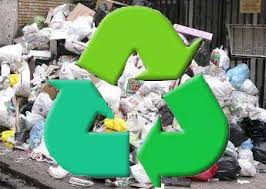
Nature of work
A recycling officer helps to plan and develop the environmental and waste reduction policies in places such as, district, cities and country sides. He/she achieves this in a variety of ways, like:- Managing local recycling schemes.
- Creating and delivering educational programs.
- Organizing community and media initiatives.
Typical activities could include:
- Highlighting the importance of recycling to the local community and media.
- Encouraging households and businesses to use recycling.
- Initiating new recycling schemes.
- Monitoring and expanding existing schemes, e.g. recycling banks, and composting.
- Monitoring the use of facilities.
- Strategic planning for the management and development of recycling.
Environment of work
Working hours are typically from 8.30am to 3.30pm, with some extra hours and weekend working necessary for special events. Flexi-time working is often possible in governmental departments. Approximately half of his/her time will be spent inspecting recycling sites, attending meetings and giving presentations to schools and community groups. His/her role involves contacting with a wide range of people. Self-employment/freelance work is unlikely. The majority of recycling officers are employed in governmental departments, although there are opportunities with consultancies and in industry. Generally, recycling officer roles involve a high degree of autonomy. Travel within a working day is frequent. Absence from home at night is occasional and overseas work or travel is uncommon. Professional life
The role of recycling officer has increased in importance in recent years, at least partly due to government targeting initiatives for reducing domestic and industrial waste.
Recycling officers often work in departments of local government, e.g. environmental services, waste management or community services. Opportunities to work as recycling officers are also becoming more common in the private sector.
Starting salaries are typically between 25,000 and 28,000 SYP a month.
Getting the job
Relevant degree subjects include life and medical science, physical/mathematical/applied science and engineering. In particular, the following subjects may increase his/her chances:Environmental science, either biological or physical, earth sciences, biology,
Experience, personal qualities and knowledge of current environmental, waste management and recycling legislation and issues may override the need for a degree.
A pre-entry postgraduate qualification is not essential, but may be helpful, particularly in the area of waste or environmental management.
Skills
Candidates need to show evidence of the following:- Creative problem-solving skills.
- Strong communication and interpersonal skills.
- Presentation skills.
- Ability to manage pressure and workloads.
- Organizational and planning skills.
- Awareness of environmental issues, including an understanding of recycling legislation.
- Enthusiasm and a proactive outlook.
- Ability to work autonomously.
Sources and references
If you need any further information on what is included in this file, you can visit the following websites:www.nrdc.org/recycling, Recycling Facts, Recycling Information, Activities & Solutions
www.iema.net, IEMA is the largest environmental professional body, providing environmental practitioners with the knowledge, skills and tools.
Summary
A recycling officer is responsible for planning and developing environmental and waste reduction policies, and running local recycling schemes.His/her work may include:
Promoting recycling to the local community, including schools and the media.
Developing policies.
Managing local recycling facilities and collection services.
In some jobs he/she might have joint responsibility for recycling and waste management, in others he/she would just focus on recycling.
